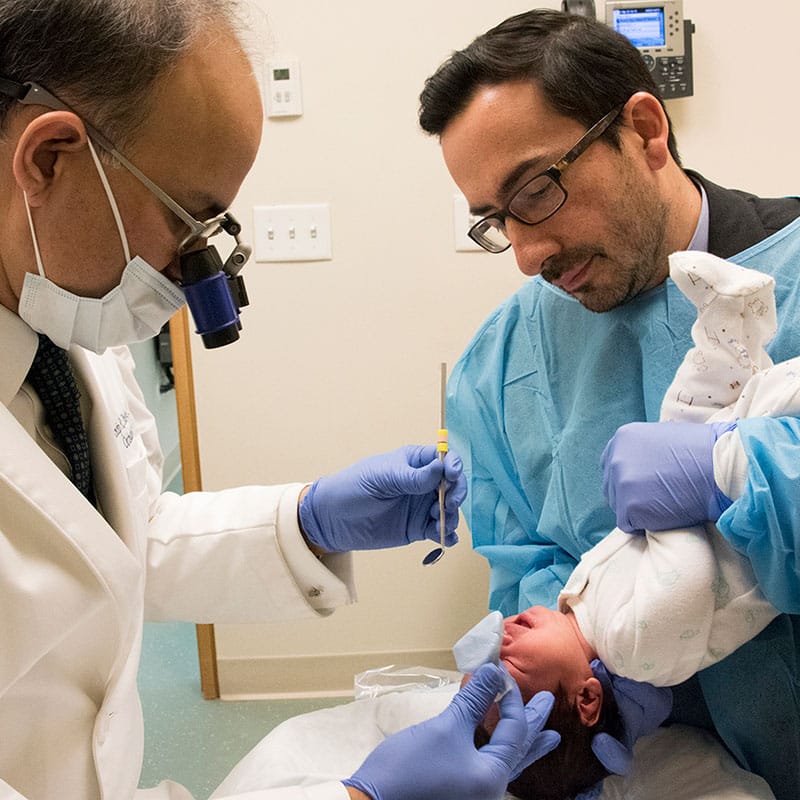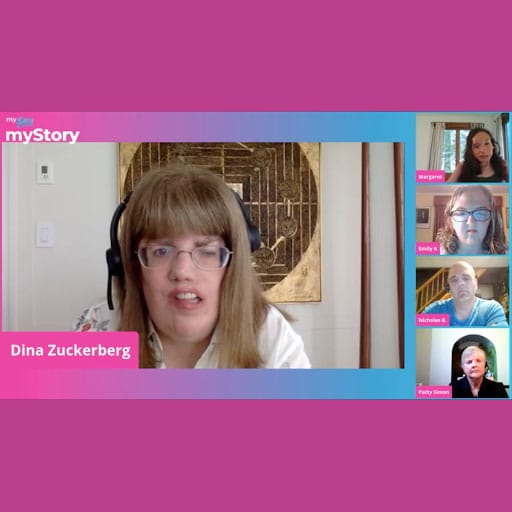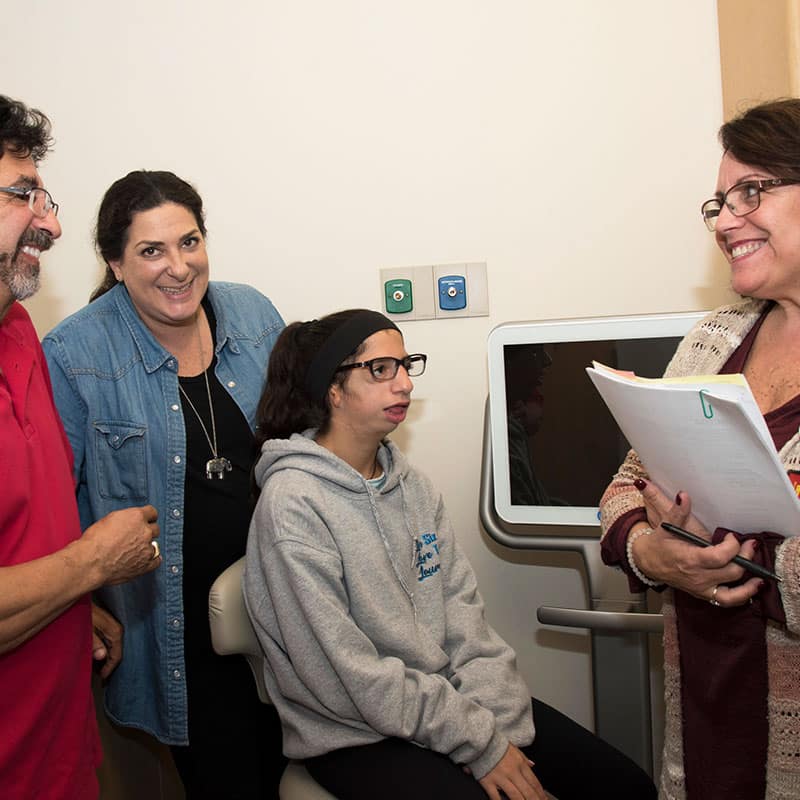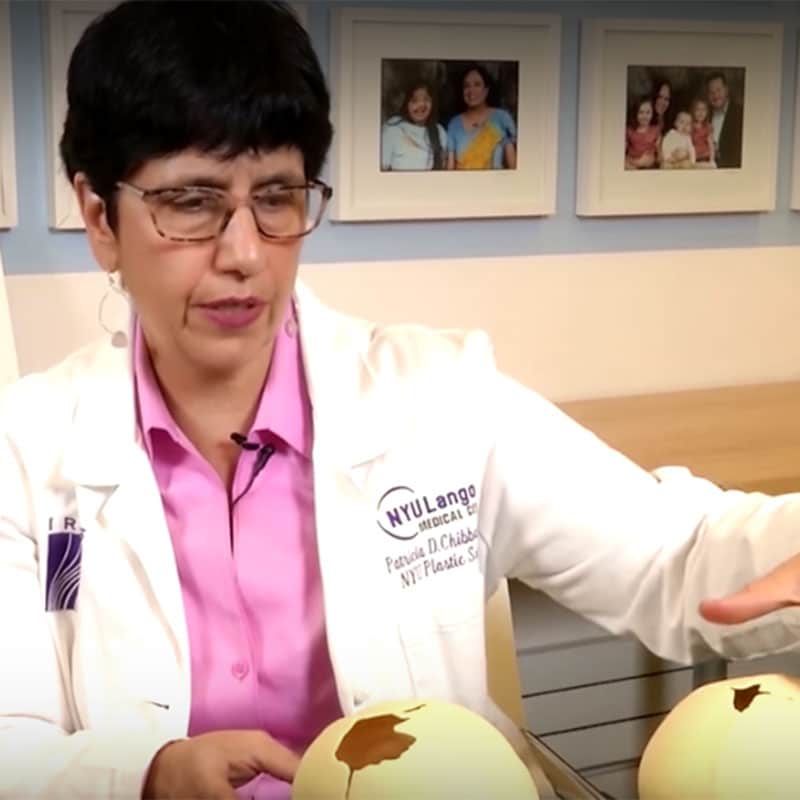Diagnosing Cleft Lip and/or Palate
Home > Craniofacial Conditions > Cleft Lip and/or Palate > Diagnosing
Prenatal ultrasound can detect many cases of cleft lip before birth.
How can Cleft Lip and/or Palate be diagnosed before birth?
Many cases of cleft lip are diagnosed during pregnancy, as advances in prenatal ultrasound have made it possible to identify fetuses with cleft lip as early as weeks 13 to 14 of pregnancy. In the second trimester, assessment for cleft lip is part of the routine obstetric exam.
If a cleft lip is detected on ultrasound, the palate is also carefully assessed, since the majority of infants with cleft lip also have cleft palate. However, standard prenatal ultrasounds are rarely able to detect cases of cleft palate alone.
When a cleft is detected during a prenatal exam, families are typically offered further evaluation. Further imaging should be done to assess for additional structural anomalies.
The most common associated anomalies involve the central nervous system/skeletal system (33% of cases) and the cardiovascular system (24% of cases). However, in up to one-fifth of cases, additional anomalies are not found until birth. Also, noninvasive prenatal testing or amniocentesis (a procedure to sample the amniotic fluid to test for genetic anomalies) can be utilized to assess for genetic syndromes and other gene mutations.
What happens after prenatal diagnosis of Cleft Lip and/or Palate?
After prenatal diagnosis of a cleft is made, referral to a Cleft Palate/Craniofacial Care Team is recommended. This can help families prepare in advance for the care of the newborn, initiate planning for surgical repair, and connect to a multidisciplinary team to help address potential issues that may impact the child – especially breathing, feeding, speech, hearing, and any psychosocial issues.
Some cases of cleft lip/palate are not detected during the prenatal ultrasound. However, these are usually noted immediately after birth during a physical exam. Typically, no special tests are needed to confirm the diagnosis. However, genetic counseling may be recommended to determine if there is a genetic cause.
Resources for the Craniofacial Community
myFace provides individuals and families living with a facial difference access to holistic comprehensive care, psychosocial services, education, resources and support that pave the way for better outcomes.








